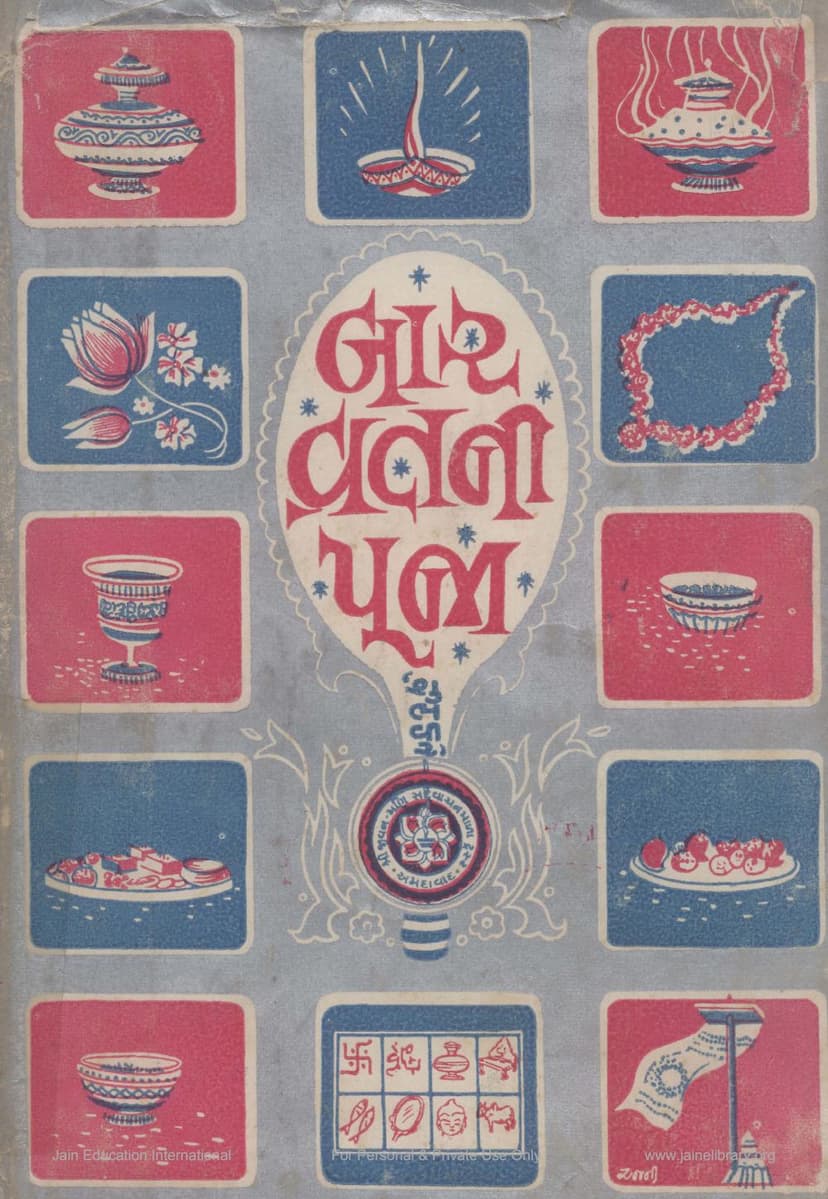Bar Vrat Ni Pooja
Added to library: September 1, 2025
Loading image...

Summary
The book "Bar Vrat ni Pooja" (The Pooja of Twelve Vows) by Jaybhikkhu, published by Jivanmani Sadvachan Mala Trust, is a devotional work dedicated to the practice of Jain vows. The text focuses on the "Twelve Vows of a Householder" (Shravaka) as outlined in Jain scriptures, specifically referencing the Upasakdashaang Sutra.
Key Themes and Content:
- Purpose: The book aims to guide lay followers (Shravakas) in their spiritual journey by elucidating the importance and practice of the twelve vows, which are considered essential for spiritual progress in Jainism. It presents these vows through devotional poems and rituals (Pooja).
- Author and Dedication: The book is compiled and edited by Jaybhikkhu. It is dedicated to the late Lilavatiben Lalbhai Shah, who embodied the principle of "Dharma is the duty of a housewife."
- Structure of the Pooja: The "Pooja" is structured around a series of poems dedicated to each of the twelve vows, along with the foundational vow of Samyakva (Right Faith). Each vow is typically associated with a specific offering or ritual element (e.g., water pooja for Samyakva, sandalwood pooja for the vow against violence, floral garland for the vow against falsehood, lamp for the vow against theft, incense for the vow of chastity, etc.).
- The Twelve Vows: The book details the following vows:
- Samyakva: Right Faith.
- Sthul Pranaatipata Viraman: Vow to abstain from gross violence.
- Sthul Mrushavada Viraman: Vow to abstain from gross falsehood.
- Sthul Adattadana Viraman: Vow to abstain from gross theft.
- Sthul Maithuna Viraman: Vow to abstain from gross sensual indulgence.
- Sthul Parigraha Pariman: Vow to limit one's possessions.
- Dig Vrat: Vow to limit one's movement in specific directions.
- Bhoga Upbhoga Pariman: Vow to limit the use of consumable and renewable things.
- Anartha Danda Viraman: Vow to abstain from fruitless or harmful actions.
- Samayika Vrat: Vow of equanimity and meditation for a set period.
- Deshavakashika Vrat: Vow to limit one's activities to a specific area and time.
- Paushadha Vrat: Vow of temporary renunciation, often observed on holy days.
- Atithi Samvibhag Vrat: Vow of charity towards ascetics and those in need.
- Poetic Style and Devotion: The text is written in a poetic and devotional style, aiming to evoke a sense of love and reverence for the Jain principles and the Tirthankaras, particularly Lord Mahavir. The poems often draw upon Jain mythology and the lives of exemplary householders like Anand and Kamdev to illustrate the vows.
- Contextualization: The introductory sections and throughout the book, the author emphasizes the relevance of these vows in the current era, highlighting the need for peace, restraint, and ethical conduct in a world often marked by conflict and material attachment.
- Lineage and Influence: The book acknowledges the contributions of various Jain scholars and poets, tracing a lineage of spiritual and literary influence that led to the composition of these devotional verses. Pandit Shri Vir Vijayji, the author of the original "Bar Vrat ni Pooja," is recognized for his extensive contribution to Jain devotional literature.
- Overall Message: "Bar Vrat ni Pooja" serves as a practical guide for Jain householders to understand and implement the fundamental vows in their daily lives. It encourages a life of moderation, ethical conduct, and devotion, leading to spiritual upliftment and eventual liberation. The book is presented as a means to purify one's life, drawing inspiration from the teachings of the Tirthankaras and the exemplary lives of devout followers.